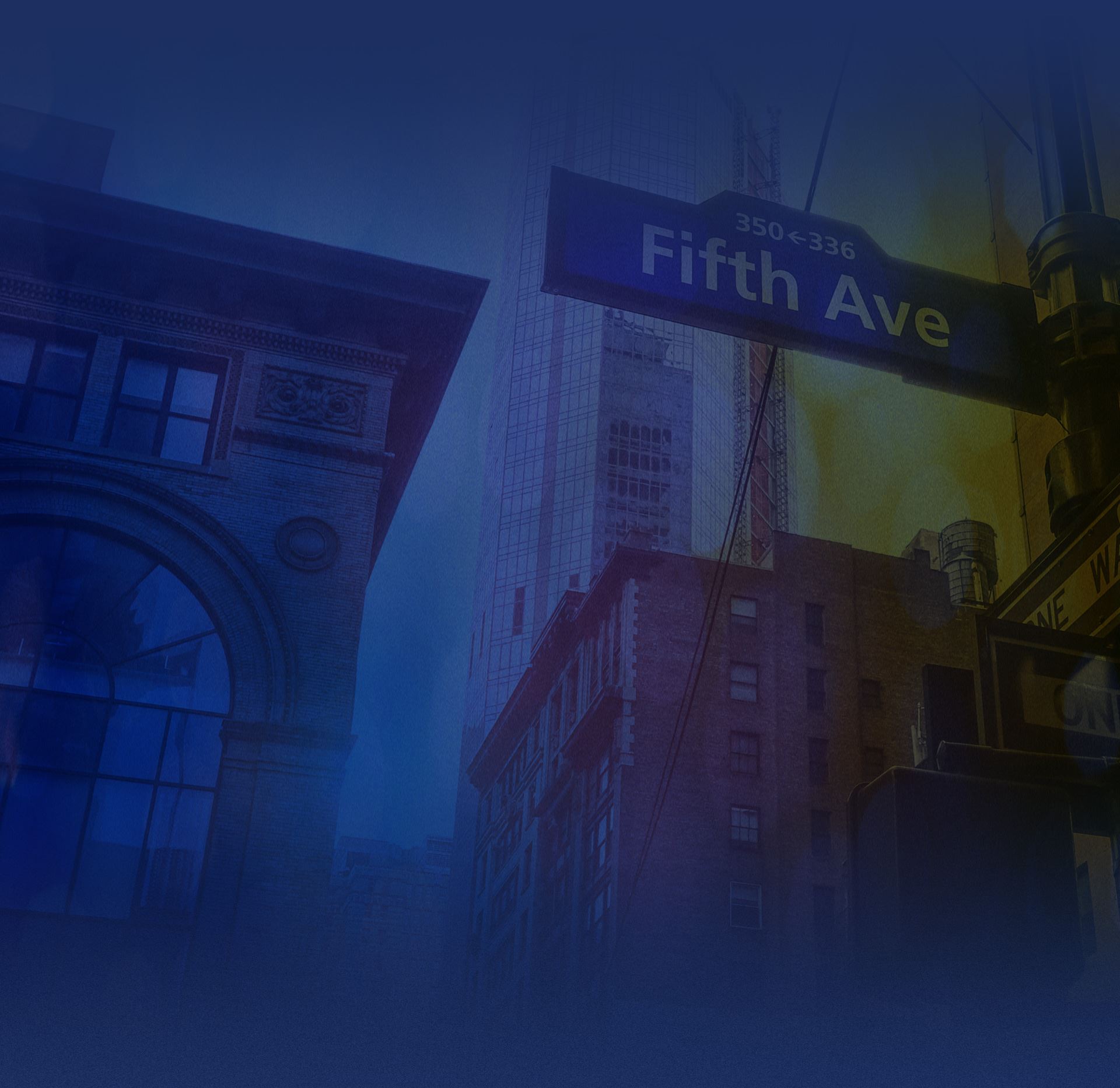
dRUG cRIMES
HELPING YOU DEFEND YOUR FUTURE & REPUTATION
NYC Drug Paraphernalia Attorneys
Former Prosecutor Ready to Fight Your Drug Charges
New York law prohibits the possession of drug paraphernalia. Paraphernalia is defined as any equipment, product, or material that is used to manufacture, store, contain, or use a controlled substance. Possession of drug paraphernalia is a separate charge from the possession of a controlled substance. If you are charged with possession of drug paraphernalia, you need an experienced attorney on your side. At Cohen Forman Barone, P.C., we have the skills and knowledge to help you defend your case. We will work hard to help you get the best results possible.
What Is Drug Paraphernalia in NY?
In New York, drug paraphernalia is any equipment, product, or material that's knowingly possessed or sold for the unlawful manufacturing, packaging, or dispensing of controlled substances.
Here are some examples of drug paraphernalia in NY:
- Scales
- Pipes
- Bongs
- Rolling papers (when accompanied by other drug paraphernalia)
- Vials
- Needles
- Syringes
- Empty capsules
When Does a Drug Paraphernalia Charge Turn into Drug Possession?
In New York, a drug paraphernalia charge typically turns into a drug possession charge when law enforcement finds evidence that links the paraphernalia to actual drugs. Here are some ways this can happen:
- Residue: If the paraphernalia has residue that tests positive for a controlled substance, that's strong evidence you possessed the drug.
- Quantity: A large amount of paraphernalia, especially alongside items like baggies or scales, suggests an intent to distribute drugs, which is a more serious offense.
- Location: If the paraphernalia is found near a location where drugs are commonly used or sold, it strengthens the case against you.
- Admission: If you admit to using the paraphernalia for illegal drugs, that's a clear sign of drug possession.
Intent is crucial. If you have a legitimate explanation for possessing the paraphernalia, it can help your defense. For instance, if you have a bong but claim you only use it for tobacco, you might have a case, especially if there's no drug residue.
- Criminal Possession of Drug Paraphernalia: This charge typically involves possessing drug paraphernalia with the intent to use it for manufacturing, packaging, or using illegal drugs.
- Criminal Sale of Drug Paraphernalia: Selling or intending to sell drug paraphernalia is a criminal offense in New York. This charge can apply to individuals who knowingly sell or distribute items primarily used for drug consumption or production.
- Promoting the Use of Drug Paraphernalia: Encouraging or promoting the use of drug paraphernalia, such as advertising its use, can result in charges under this category.
- Possession of Drug Paraphernalia in the Second Degree: This charge may apply if an individual possesses drug paraphernalia and has a prior conviction related to controlled substances (NY Penal Code § 220.50).
- Possession of Drug Paraphernalia in the First Degree: This is a more serious charge, typically applied if someone possesses drug paraphernalia with the intent to sell or distribute it (NY Penal Code § 220.55)
- Manufacturing Drug Paraphernalia: Making or producing drug paraphernalia with the intent to sell or distribute it is illegal and can result in charges under New York law.
Penalties for Possession of Drug Paraphernalia in NY
The penalties for possession of drug paraphernalia will depend on the type of paraphernalia involved and any prior convictions.
Possible penalties for possession of drug paraphernalia include:
- For a first-time conviction: Up to 364 days in jail and a $1,000 fine for a Class A Misdemeanor
- A subsequent conviction: Up to 7 years in prison for a Class D felony
- Possession of precursors of controlled substances: Up to 4 years in prison for a Class E felony
Defenses for Drug Paraphernalia Charges in NY
In New York, drug paraphernalia charges fall under Penal Law § 220.50 for Criminal Use of Drug Paraphernalia in the Second Degree (misdemeanor) and § 220.55 for the First Degree (felony). Some possible defenses include:
Unlawful Search and Seizure
- Fourth Amendment Rights: Challenge the legality of the search that led to the discovery of the paraphernalia. If the search was conducted without a valid warrant or probable cause, the evidence may be suppressed.
- Lack of Consent: Argue that the defendant did not consent to the search or that the consent was coerced.
Lack of Knowledge
- No Awareness: Assert that the defendant was unaware that the item was drug paraphernalia. For example, if the paraphernalia was found in a shared space or belonged to someone else.
- Innocent Possession: Claim that the defendant did not know the items were present or did not know they were considered paraphernalia.
Possession for Legal Use
- Medical Necessity: If the items were intended for legal purposes, such as medical marijuana use (where applicable), present evidence of a valid prescription or medical authorization.
- Alternative Use: Demonstrate that the items have a legitimate use not related to drugs. For example, arguing that a scale is used for measuring legal substances.
Mistaken Identity
- Not the Defendant’s Property: Argue that the paraphernalia belonged to someone else and that the defendant had no control over the area where it was found.
- No Exclusive Control: Show that the defendant did not have exclusive possession or control over the place where the paraphernalia was discovered.
Procedural Defenses
- Chain of Custody Issues: Challenge the prosecution to prove the chain of custody of the paraphernalia, highlighting any breaks or discrepancies.
- Violation of Rights: Argue that the defendant's rights were violated during the arrest or investigation, such as improper Miranda warnings.
Insufficient Evidence
- Lack of Proof: Contend that the prosecution has not provided enough evidence to prove that the items are indeed drug paraphernalia or that they were used or intended for drug use.
- Expert Testimony: Use expert witnesses to challenge the identification of the paraphernalia or its intended use.
Entrapment
- Government Inducement: Argue that law enforcement induced the defendant to commit a crime they would not have otherwise committed, and that the defendant was not predisposed to possess drug paraphernalia.
If you are charged with any type of charge for possession of drug paraphernalia, you should not wait to retain an attorney. Drug paraphernalia cases can be complicated and involve many details. An experienced attorney can help you navigate these details and ensure that your rights are protected.

Contact a Firm with 75+ Years' Experience to Put to Work for You
If you are charged with possession of drug paraphernalia, you need an attorney who understands the New York criminal justice system. At Cohen Forman Barone, P.C., we have handled many cases and have helped our clients avoid jail time and fines. We will work hard to help you get the best possible outcome for your case. Turn to a trial-tested law firm with a former prosecutor!
For a consultation with a NYC drug paraphernalia defense lawyer, contact us online or call us at (212) 577-9314.


Our Testimonials
Former Clients Share Their Experience with Our Firm
-
“Criminal Defense Client” - JT.


